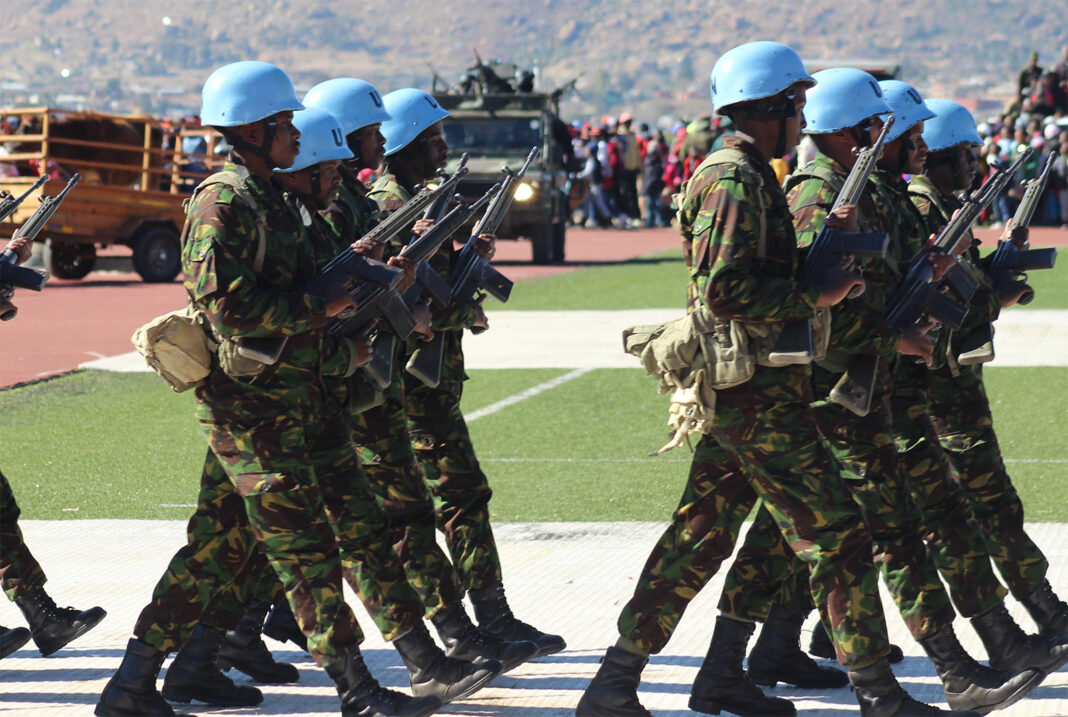With Lesotho only having started celebrating International Albinism Awareness Day this year, theReporter’s Neo Kolane picked the brain of the president of the Albino-Multipurpose Association of Lesotho, Site Khomo-ea-majoe, who says it is the association’s wish for Basotho to understand and appreciate people with albinism.
She says, on the whole, it is gratifying to note that Basotho are beginning to warm up to albinism and embracing it.
Khomo-ea-majoe says a UN expert urged the Lesotho authorities to prioritise removing barriers to the enjoyment of rights of persons with albinism, saying this would vastly improve their lives.
What are the primary social and cultural challenges faced by individuals with albinism in Lesotho?
Parents, especially mothers, often experience shock and disbelief when their child is born with albinism. This initial reaction can sometimes lead to concerns that the child has been swapped, due to the unexpected appearance of albinism.
The process of accepting a child with albinism can be emotionally taxing. Parents might struggle with feelings of confusion and worry about the future, which can be exacerbated by societal prejudices and a lack of understanding.
There can be significant anxiety about how extended family members and partners will react. In some cultures, there are stigmas associated with albinism, which might cause fear of rejection.
Parents might worry that the presence of a child with albinism could impact their marital relationship or social standing.
Many parents lack proper training or information on how to care for a child with albinism. This gap in knowledge can make it difficult to manage specific needs, such as skin protection and eye care.
The cost and availability of appropriate body lotions, sunscreens, and other necessary products can be a barrier. These products are essential for managing the skin’s sensitivity to sunlight and preventing sunburn.
Children with albinism often face exclusion and bullying from peers due to ignorance. This can affect their social development and self-esteem.
There is critical need for educational programmes to raise awareness and foster acceptance. These programmes should target not just families, but also schools and communities to promote inclusivity and understanding.
Families with limited resources might struggle to afford the specialiSed care and products needed for a child with albinism. This economic strain can be compounded by social stigma and lack of support services.
How does albinism impact the health and well-being of individuals in Lesotho?
Having albinism does not mean one is sick, it is not a disease. it is a condition that their skin is different from other people. The challenge is that they have a problem with the sun and their eye sight is short.
What are the educational challenges for children with albinism in Lesotho, and how can these challenges be addressed?
When it comes to school, parents need to explain to teachers and beg them that the child be seated in the front row during classes due to their inability to properly see.
Some teachers still do not understand why the child should sit in front of the chalkboard. Some of them say that the students are able to afford spectacles so why should they sit in front. In rural areas, some of the children drop out of school because they cannot afford spectacles.
At primary level, it is even worse because children with albinism do not have confidence yet. It is better at high school because confidence is gained and they can speak for themselves.
All the time, it seems like we have to explain, which is boring sometimes, because we have to explain to each and every teacher.
Going to school and graduating is by God’s grace because it really is not easy. Our sense of hearing is brilliant, so when a teacher speaks, we are able to write notes.
At times, pupils with albinism need to depend on the person sitting next to them and it can get to a point where they get irritated.
These challenges can be addressed in a way that from the onset when a mother is pregnant, they should be taught that they might conceive such a child and that they should be told it is not a taboo to have such a child.
There should also be training at Lesotho College of Education and albinism should be included as a special education.
How does poverty in Lesotho affect the quality of life for individuals with albinism and their families?
Itis very bad, when one has given birth to a child with albinism, it levels up the situation
For instance, Carmex lip balm is M70 which is equivalent to 12.5 kg of maize meal. A mother then has to decide between food and lotion.
Secondly, buying spectacles is another challenge as they are expensive because people with albinism do not just put on single lensed glasses.
They are therefore left to be a burden in their homes and end up being herders.
Even going to work as maids in South Africa is also a challenge as some people do not approve of people with albinism to cook and clean for them.
What role do myths and superstitions play in shaping the experiences of individuals with albinism in Lesotho?
Myths disturb a person’s mind. For example, some people say a person gives birth to a child with albinism because they had sexual intercourse with a Chinese national.
Some believe that when a person with the condition dies, they just disappear and turn into mules. Some can make traditional medicine from a person with the condition.
What initiatives or organisations are currently working to support individuals with albinism in Lesotho, and how effective are they?
When we founded the Albino Multipurpose Association in 2012, we had realised the many challenges people with this condition have gone through. And we tried to help train parents with children with albinism, who know nothing about it.
This is because some parents believe that their children will change, as they grow older.
We also ask for sunscreens from Netherlands for them, which arrive two times in year.
The Good Shepherd Union also assists us.
A UN expert, Muluka-Anne Miti-Drummond who is also an independent expert on albinism, visited Lesotho for 10 days earlier this year; she explained that concrete measures focused on the specific needs of persons with albinism can have far-reaching impacts including on their quality of life and life expectancy.
Miti-Drummond said persons with albinism experience serious barriers including stigma and discrimination due to colour and visual impairment, lack of access to healthcare, including sunscreen and visual aids, as well as lack of access to education and employment which in turn, have led to poverty.
“Many measures to address these barriers are relatively achievable and inexpensive to implement – for instance the provision of sunscreen through the public health system to prevent life-threatening skin cancer, a more affordable option than skin cancer treatment, reasonable accommodation in schools and work-place settings, and having a robust nationwide campaign to educate and raise awareness on the cause of albinism and care for those with albinism,” Miti-Drummond said.
Although there were some encouraging testimonies, Miti-Drummond indicated she had heard far more cases involving bullying, micro-aggressions, and emotional trauma.
In spite of all that, there are individuals who help us.
It was only this year when the ministry of gender, youth and social development took the initiative and made the International Albinism Awareness Day official and celebrated with the help of UN.
How do legal frameworks and government policies in Lesotho address the needs and rights of individuals with albinism?
There is no government policy that states what should be done about people with albinism. Everything about addressing disabled people is in general terms.
What are the psychological and emotional effects of stigma and discrimination on individuals with albinism in Lesotho?
Some people with albinism end up committing suicide.
People take a long time, wondering what is wrong with them, as they are not able to accept their condition.
Some are not able to accept that they are not the same as their parents, and usually do not have answers to such questions. To some people, it makes them want to be treated in a certain way, and always be sympathised with.









